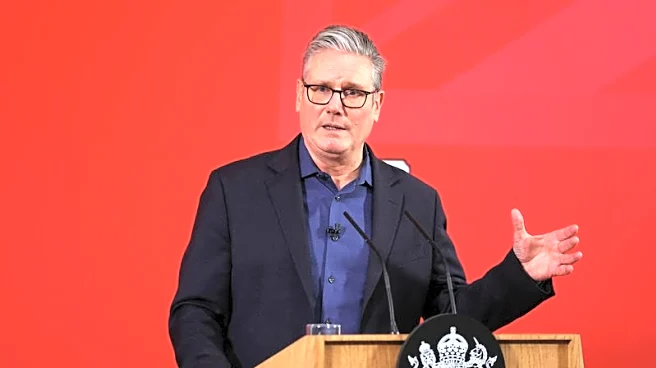What's Happening?
Comedian Omid Djalili has faced criticism for participating in the Riyadh comedy festival, citing the event as a platform for cultural exchange and social transformation. Despite calls for boycotts due to Saudi Arabia's human rights record, Djalili argues that performing in the country allows for subtle shifts in societal norms. He emphasizes the importance of engaging with local audiences and contributing to the evolving cultural landscape in the Middle East.
Why It's Important?
Djalili's participation in the festival highlights the role of arts and entertainment in fostering dialogue and change in regions with restrictive regimes. By performing in Saudi Arabia, comedians can challenge cultural taboos and encourage openness, potentially influencing public perceptions and attitudes. This engagement can support broader efforts towards modernization and reform in the country.
Beyond the Headlines
The controversy surrounding Djalili's decision underscores the ongoing debate about the ethics of performing in countries with questionable human rights records. It raises questions about the responsibilities of artists in promoting change versus endorsing regimes. The festival's success may encourage more international performers to engage with audiences in the Middle East, contributing to gradual societal shifts.










